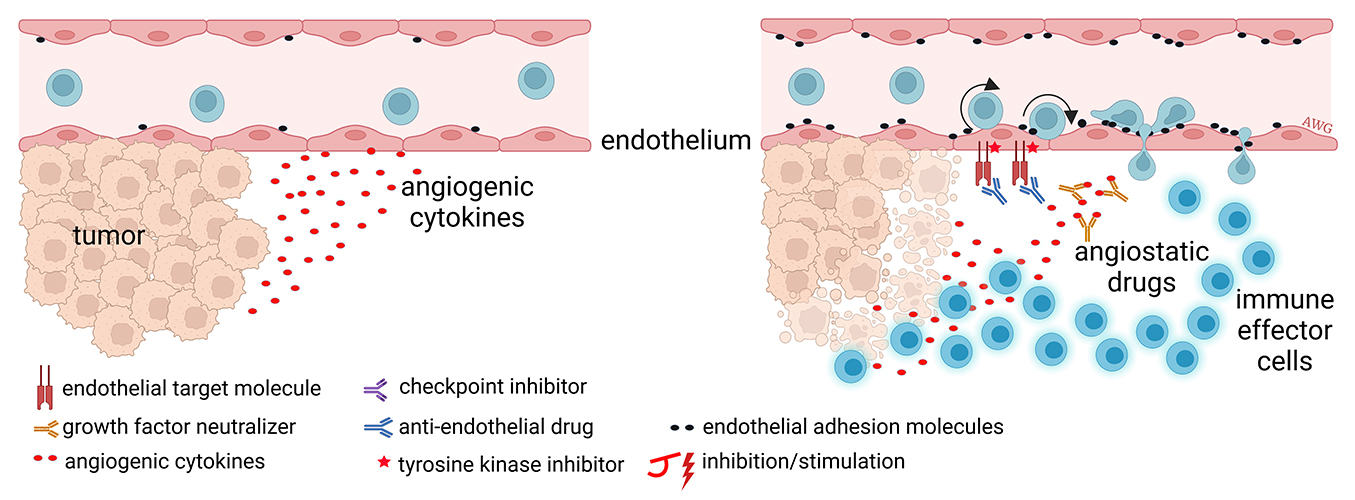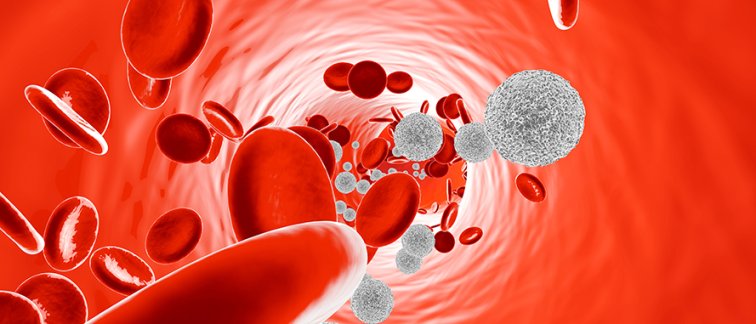Growth of blood vessels that are associated with tumors is a characteristic sign of cancer progression. Increasing evidence also demonstrates that tumor angiogenesis induces immune suppression and evasion of anti-tumor immune activity.
Previous preclinical studies showed that inhibition of angiogenesis can enhance anti-tumor immune response, but the exact mechanism was unknown.
To gain more insight into how anti-angiogenic treatment improves anti-tumor immune activity, Prof. Arjan Griffioen and his team extensively profiled the immune infiltrate in tumors from renal cell carcinoma (RCC) patients that received angiogenesis inhibitors prior to surgery.
“Using preclinical models and RCC patient tumor tissues, we showed that angiogenesis inhibitors enhance immune activity by stimulating the entry and adhesion of leukocytes to tumor tissues,” says Prof. Griffioen. “Overcoming the tumor’s anti-immune activities – also called ‘tumor endothelial cell anergy’ – provides a rationale for the success of combination therapy that combines angiogenesis inhibitors and immunotherapy.”
Currently, over 90 clinical trials are evaluating the clinical benefit of combining immunotherapy, in particular immune checkpoint inhibition, with anti-angiogenic agents. The results described in this study are the first to demonstrate in patients that the proinflammatory activity of anti-angiogenic drugs is based on overcoming tumor endothelial cell anergy. This supports the emerging concept that anti-angiogenic therapy can boost immunity, and elucidates the role of angiogenesis inhibitors in immunotherapy.

Left image: Tumor growth in immune-silent conditions induced by angiogenic cytokines. Right image: Angiogenesis inhibitors allow invasion of immune effector cells.
Read more information on the Angiogenesis Laboratory and Prof. Arjan Griffioen here.
Contact Prof. Griffioen, or read the scientific publication: Nowak-Sliwinska P., van Beijnum J. R., Griffioen C. J., Huinen Z. R., Sopesens N. G., Schulz R., Jenkins S. V., Dings R. P. M., Groenendijk F. H., Huijbers E. J. M., Thijssen V. L. J. L., Jonasch E., Vyth-Dreese F. A., Jordanova E. S., Bex A., Bernards R., de Gruijl T. D., & Griffioen A. W. (2022). Proinflammatory activity of VEGF-targeted treatment through reversal of tumor endothelial cell anergy. Angiogenesis.doi: 10.1007/s10456-022-09863-4. Epub ahead of print. PMID: 36459240.
Researchers involved at Amsterdam UMC:
Judy R. van Beijnum, senior scientist at Angiogenesis Laboratory Amsterdam
Christian J. Griffioen, bioinformatician Oncogenomics
Elisabeth J.M. Huijbers, postdoctoral researcher at Angiogenesis Laboratory Amsterdam
Victor L.J.L. Thijssen, molecular cell biologist
Ekaterina S. Jordanova, principal investigator
Tanja D. de Gruijl, professor of Translational Tumor Immunology
Arjan W. Griffioen, professor of Experimental Oncology and CSO of CimCure.
Text by Laura Roy.
This article was created for Cancer Center Amsterdam.
© 2023 NHBC– All rights reserved.

